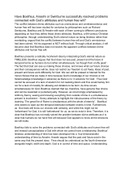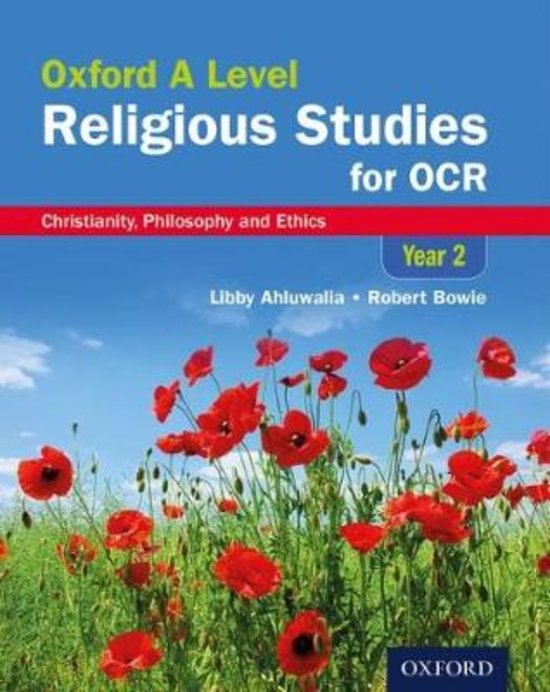Have Boethius, Anselm or Swinburne successfully resolved problems
connected with God’s attributes and human free will?
The conflict between divine attributes such as omniscience and omnibenevolence and
human free will has been studied for centuries by philosophers such as Richard
Swinburne, Boethius and St Anselm with each of them coming to different conclusions
depending on how they define these divine attributes. Boethius, a 6th-century Christian
philosopher, through understanding God’s eternal nature as being timeless rather than
everlasting, argued that the conflict between human free will and God’s omniscience
had been solved. Yet his argument is NOT without fault. Through critical analysis, it will
become clear that Boethius does not resolve the apparent conflicts between divine
attributes and human free will.
Boethius presents a radically incoherent idea by interpreting God's eternal nature as
TIMELESS. Boethius argues that God does not see past, present and the future in
temporal terms as humans do but rather simultaneously ‘’as though from a lofty peak’’.
The fact that God can see us making those choices, and knows what our future choices
and their consequences will be, does not restrict our freedom to act freely. Ideas of past,
present and future work differently for God. We can still be praised or blamed for the
moral choices that we make in time because God’s knowledge of our choices is not
foreknowledge (knowledge in advance) as there is no ‘in advance’ for God. Thus God
cannot be accused of a lack of wisdom for not realizing Adam and Eve would betray him
nor for a lack of morality for allowing evil dictators to be born. As time occurs
simultaneously for God, Boethius claimed that we, therefore, have genuine free choice
and can be rewarded or punished justly. However, as convincingly emphasised by
Anthony Kenny, seeing and knowing everything from outside of time in a simultaneous
present is incoherent – Kenny attempts to highlight the ridiculousness of the theory by
claiming “The great fire of Rome is simultaneous with the whole of eternity”. Boethius’
view seems to wipe out the temporal distinction between events in time. Furthermore,
as God does still know our choices with certainty, and while this might not be
‘beforehand’ for God, it is still ‘beforehand’ for us, as we do exist in time. Therefore, it is
clear that Boethius has not really solved the problem between divine attributes as it is
clear that humans do not have free will because God appears to know all the decisions
we will make.
Boethius fails to solve the problems connected with God's attributes and human free will
and instead conceptualises a God with whom we cannot have a relationship. Boethius'
timeless understanding of time has been developed into a four-dimensionalist
understanding of time by Anselm. Anselm argues that the past and future exist in the
same way that the present does. Time should be understood as the fourth dimension
alongside height, width and depth. God is in control of time and space. Understanding





